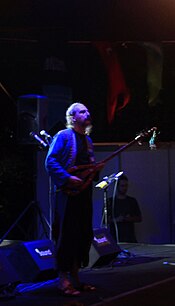
Bosnia and Herzegovina, sometimes known as Bosnia-Herzegovina and informally as Bosnia, is a country in Southeast Europe, situated on the Balkan Peninsula. It borders Serbia to the east, Montenegro to the southeast, and Croatia to the north and southwest. In the south it has a 20 kilometres long coast on the Adriatic Sea, with the town of Neum being its only access to the sea. Bosnia has a moderate continental climate with hot summers and cold, snowy winters. In the central and eastern regions, the geography is mountainous, in the northwest it is moderately hilly, and in the northeast it is predominantly flat. Herzegovina, the smaller, southern region, has a Mediterranean climate and is mostly mountainous. Sarajevo is the capital and the largest city.

Jalāl al-Dīn Muḥammad Rūmī, or simply Rumi, was a 13th-century poet, Hanafi faqih (jurist), Islamic scholar, Maturidi theologian (mutakallim), and Sufi mystic originally from Greater Khorasan in Greater Iran.
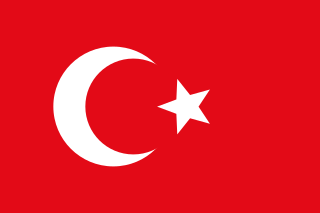
The Ottoman Empire, also called the Turkish Empire, was an imperial realm that controlled much of Southeast Europe, West Asia, and North Africa from the 14th to early 20th centuries; it also controlled parts of southeastern Central Europe, between the early 16th and early 18th centuries.
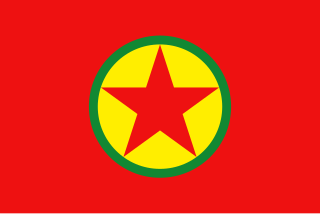
The Kurdistan Workers' Party or PKK is a Kurdish militant political organization and armed guerrilla movement which historically operated throughout Kurdistan but is now primarily based in the mountainous Kurdish-majority regions of southeastern Turkey and northern Iraq. It was founded in Fîs, Lice, Diyarbakır on 27 November 1978 and has been involved in asymmetric warfare in the Kurdish–Turkish conflict. Although the PKK initially sought an independent Kurdish state, in the 1990s its official platform changed to seeking autonomy and increased political and cultural rights for Kurds within Turkey.
The roots of traditional music in Turkey span across centuries to a time when the Seljuk Turks migrated to Anatolia and Persia in the 11th century and contains elements of both Turkic and pre-Turkic influences. Much of its modern popular music can trace its roots to the emergence in the early 1930s drive for Westernization.

Tunisian culture is a product of more than three thousand years of history and an important multi-ethnic influx. Ancient Tunisia was a major civilization crossing through history; different cultures, civilizations and multiple successive dynasties contributed to the culture of the country over centuries with varying degrees of influence. Among these cultures were the Carthaginian – their native civilization, Roman, Vandal, Jewish, Christian, Arab, Islamic, Turkish, and French, in addition to native Amazigh. This unique mixture of cultures made Tunisia, with its strategic geographical location in the Mediterranean, the core of several civilizations of Mare Nostrum.

"Say You'll Be There" is a song recorded by the English girl group Spice Girls for their debut studio album Spice (1996). The Spice Girls co-wrote the song with Eliot Kennedy after the group left Heart Management in 1995. Later, Jonathan Buck also received a songwriting credit. Produced by production duo Absolute, the song incorporates a mix of dance-pop and R&B influences. It also includes a harmonica solo played by Judd Lander. Once considered by the group's record label Virgin Records to be the group's debut single, it was released as the second single from Spice on 26 September 1996.

Turkish people or Turks are the largest Turkic people who speak various dialects of the Turkish language and form a majority in Turkey and Northern Cyprus. In addition, centuries-old ethnic Turkish communities still live across other former territories of the Ottoman Empire. Article 66 of the Constitution of Turkey defines a Turk as anyone who is a citizen of Turkey. While the legal use of the term Turkish as it pertains to a citizen of Turkey is different from the term's ethnic definition, the majority of the Turkish population are of Turkish ethnicity. The vast majority of Turks are Muslims and follow the Sunni faith.

Istanbul is the largest city in Turkey, straddling the Bosporus Strait, the boundary between Europe and Asia. It is considered the country's economic, cultural and historic capital. The city has a population of over 15 million residents, comprising 19% of the population of Turkey, and is the most populous city in Europe and the world's sixteenth-largest city.
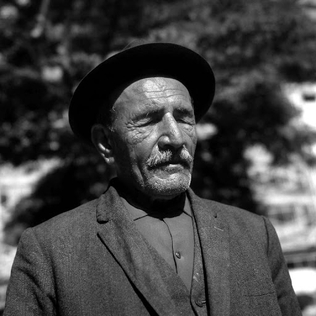
Âşık Veysel was a Turkish Alevi ashik, bağlama virtuoso, and folk poet. He was born and died in the village of Sivrialan, Sivas Province, in the Ottoman Empire. Blind since the age of 7, Veysel's songs were typically melancholic, and dealt with a range of themes revolving around morality, love, faith, life and death, patriotism, nature, and his own perception of the world as a blind man.
Turks in Germany, also referred to as German Turks and Turkish Germans, are ethnic Turkish people living in Germany. These terms are also used to refer to German-born individuals who are of full or partial Turkish ancestry.

Rebecca Foon is a Canadian cellist, vocalist, and composer from Montreal, Quebec. Foon currently records under her own name, as well as the alias Saltland, and is a member and co-founder of the modern chamber ensemble Esmerine.
The Brothers of the Baladi is an American world music band based in Portland, Oregon. They play both traditional Middle Eastern music, and also combines traditional Middle Eastern and western sounds and instruments for a unique Worldbeat sound. Band leader/percussionist/vocalist Michael Beach provides lyrics in Arabic, Turkish, Persian, French, Spanish, Kurdish, Armenian and English, and the band features many traditional Middle Eastern instruments including oud, saz, mizmar, midjwiz, arghool, doumbek, riq, def, tar, bendir and davul.
Cevdet Erek is a Turkish visual artist and musician living and working in Istanbul, Turkey. He is known for combining sound, rhythm and architecture to create installations, videos, objects and performances characterized by site specificity. Cevdet Erek was the recipient of the Nam Jun Paik Award in 2012 and represented Turkey at the 57th International Art Exhibition - La Biennale di Venezia in 2017.

Arter is a contemporary art museum in the Dolapdere district of Istanbul, Turkey.

Deleyaman is a French-American musical band founded in Normandy, France in 2000 by the American multi-instrumentalist of Greek-Armenian origins Aret Madilian from Los Angeles, along with French singer Beatrice Valantin and French-Armenian duduk player Gerard Madilian.
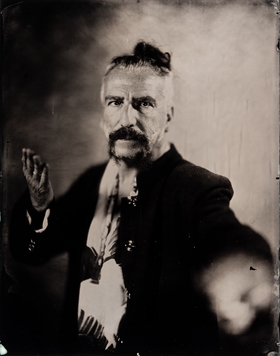
Osman Murat Ertel is a Turkish musician. He is the son of Mengü Ertel and Ülfet Ertel.

